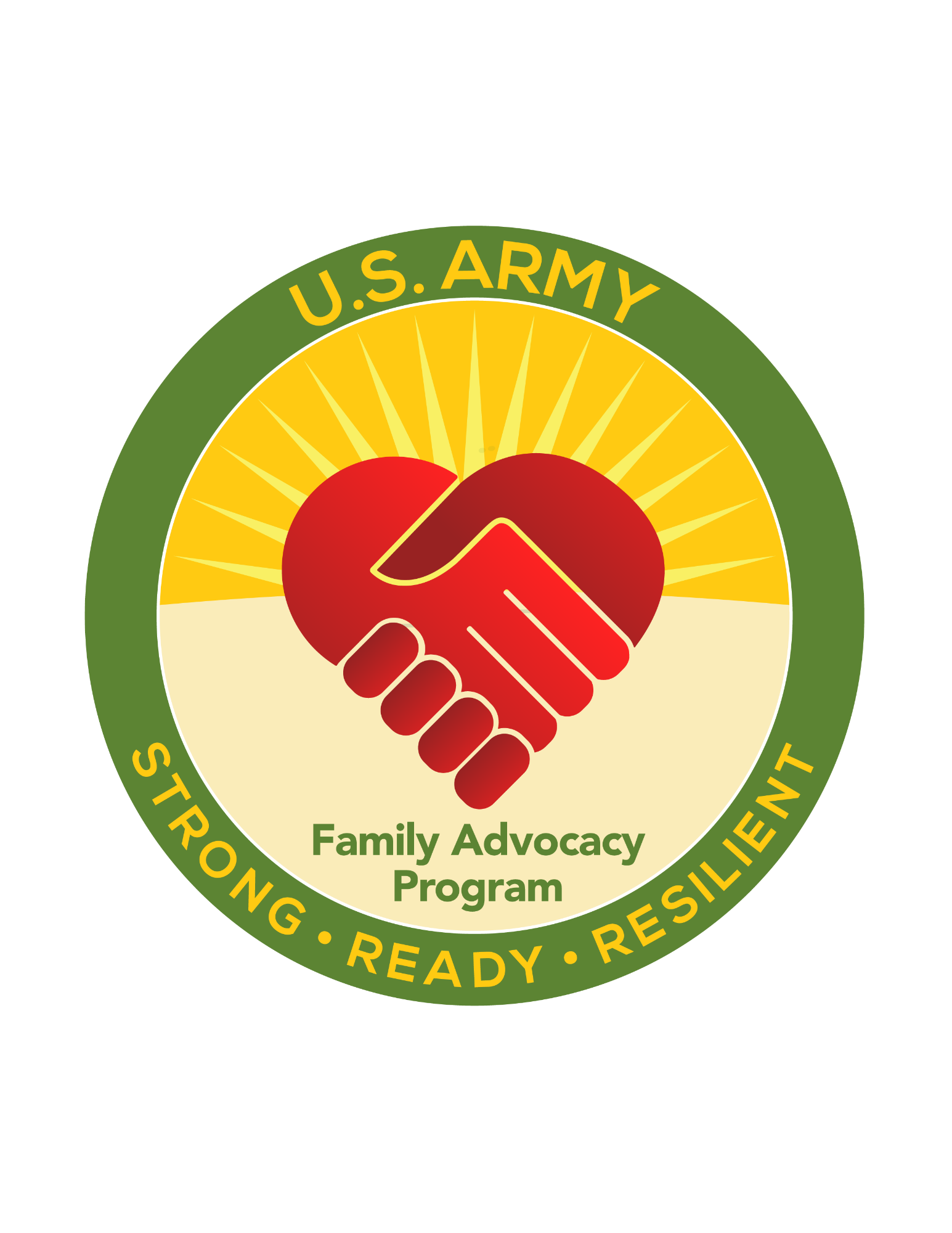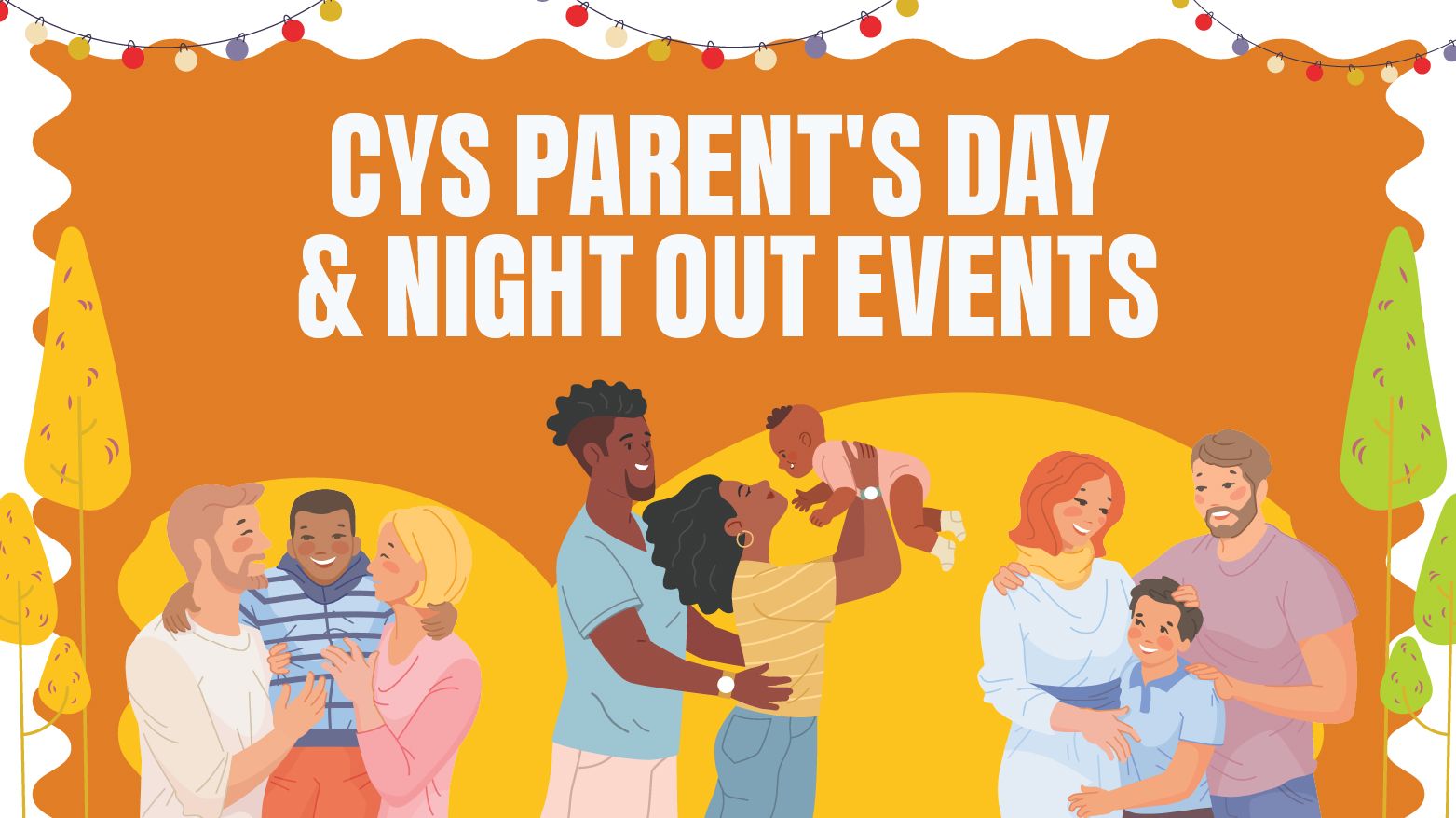- Domestic Abuse Victim Advocate Program (DAVA)
-
The Domestic Abuse Victim Advocate (DAVA) provides comprehensive support services to adult victims of domestic abuse including: crisis intervention, safety planning, help obtaining medical treatment for injuries, information on legal rights and proceedings, referral to military and civilian shelters, and other resources.
DAVA’s provide information so clients can make informed choices in reporting an assault and how they choose to proceed. DAVA’s are available to accompany adult clients to medical visits, court proceedings, and other appointments as requested. DAVA’s provide services 24 hours-a-day, 7 days-a-week. Victims are not alone, help and support are available.
- Victim Advocacy Program (VAP)
-
The Victim Advocacy Program (VAP) provides emergency and follow-up support services to adult victims of domestic abuse. Advocacy services are available to Service members, their current or former spouses, an individual with whom the Service member shares a child, and significant others of Service members who live together. Our services are available twenty-four hours a day, seven days a week.
Our trained professionals are here for crisis response, information on reporting options, medical treatment options, law enforcement’s response, emergency services, safety planning, obtaining military and civilian protective orders, and accompaniment to medical forensic exams and medical appointments, as well as accompaniment to court for orders of protection hearings and trials. Advocates work closely with their civilian counterparts and ensure a personal and smooth transition for victims who do not qualify for ongoing advocacy services within the military community.
If you need help or want more information, contact the Victim Advocacy Program Manager at your local Army Community Service Center.
Reporting Options
The Army is fully committed to ensuring victims of domestic abuse are protected; treated with dignity and respect; and provided support, advocacy and care. The Army strongly supports effective command awareness and prevention programs, and holding offenders accountable.
There are two types of reporting options: Restricted Reporting and Unrestricted Reporting. Personnel should report all suspected cases of domestic abuse promptly, which quickly activates victim services and accountability actions. However, we understand things might not always work that way. Victims might need medical attention or victim services without command or a law enforcement response. Therefore, the Army has implemented a Restricted Reporting Option for victims to confidentially disclose allegations of abuse and receive needed medical treatment and services.
Restricted Reporting
Allows someone who meets VAP criteria and who is experiencing violence in his/her relationship to confidentially disclose the abuse to a Victim Advocate, a Victim Advocate Supervisor, or a Healthcare Provider. When an individual chooses a restricted report, law enforcement is not involved and there is no investigation of the abuse. In addition, the Soldier’s Command is not notified of the abuse and is unable to offer assistance and protection.
The restricted reporting option allows an individual to receive medical treatment, advocacy services and clinical and pastoral counseling. This option allows one to receive needed services, control the release of his/her personal information, and time to consider his/her options.
Under this reporting option, the offender is not held accountable and the abuse may continue. If an assessment reveals a high risk for future injury, a restricted report may not be granted.
Unrestricted Reporting
Victims of domestic abuse who want to pursue an official investigation of an incident should report the abuse to law enforcement, or the alleged offender’s Commander. The unrestricted reporting option provides a victim with the widest array of services available including but not limited to command involvement, law enforcement involvement, medical treatment, advocacy services, and counseling services.
Not all incidents of domestic abuse are the same, and each person who experiences domestic abuse handles the situation differently.
Command Response
Commanders play an integral part in ensuring the safety, health, and well being of our Army Families. Commanders who learn of an incident of domestic abuse are required to notify law enforcement.
Victim’s Rights
- The right to be treated with fairness and with respect for your dignity and privacy.
- The right to be reasonably protected from the accused offender.
- The right to be notified of court proceedings.
- The right to be present at all public court proceedings related to the offense, unless the court determines that your testimony would be materially affected if you, as the victim, heard other testimony at trial.
- The right to confer with the attorney for the government in the case; the right to available restitution; the right to information about the conviction, sentencing, imprisonment, and release of the offender.
Safety Planning
A violent relationship puts you and your children at risk for injury and even death. Developing a safety plan tailored to meet the needs of your family will enable you get out of a potentially dangerous situation. If your children are old enough, mature enough, or even responsible enough to assist you during a violent or potentially violent episode of domestic abuse, you may consider including them in your plan to keep everyone safe. A good safety plan considers which steps to take if you choose to stay in the relationship or if you choose to leave.
Here are some tips during the explosive phase of domestic abuse:
- Move to a room with easy access to an exit. Don't go to the kitchen, bathroom or near possible weapons.
- Know the quickest route out of your home. Practice escaping that way.
- Know the quickest route out of your workplace. Practice escaping that way. Domestic violence does not just occur in your home.
- Pack a bag and have it ready. Keep it hidden but make it easy to grab quickly.
- Tell your neighbors about your abuse and ask them to call the police when they hear a disturbance.
- Have a code word to use with your kids, family and friends. They will know to call the police and get you help.
- Know where you are going to go, if you ever have to leave.
- Use your instincts.
- You have the right to protect yourself and your children.
Develop a Safety Plan
Protection Orders
Military Protection Orders (MPO)
Unit Commanders may issue a Military Protective Order (MPO) to ensure the safety of service members, family members, and other individuals from the threat of domestic violence. An MPO is a written lawful order issued by a commander that orders a Soldier to avoid contact with his or her spouse or children. The commander should provide a written copy of the order within 24 hours of its issuance to the protected person, the Military Police and civilian law enforcement. An individual should report violations of the MPO to law enforcement.Civilian Protection Orders (CPO)
A Civilian Order of Protection is an order signed by a Judge that directs an individual to stop abusing, stalking, harassing and/or committing acts of sexual violence against an individual. An individual may file a CPO against current or former spouse, someone that an individual shares a child in common, an individual with whom you have shared a residence with, someone related to you by blood or marriage or someone with whom you have dated or had intimate relations.National Resources
- United States Department of Justice Office on Violence Against Women
- National Center on Domestic and Sexual Violence
- Stalking Resource Center
- Statewide directory for laws, courts, emergency shelters, orders of protection
- Battered Women's Justice Project
- The Family Violence Prevention Fund
- Women's Justice Center– Also is Spanish
- Mind, Body, Spirit Empowered - Materials translated into many languages
- Marriage and Equality – Materials translated into many languages
Victims of domestic violence and sexual abuse have round-the-clock access to services, including emergency assistance, information, referrals, and ongoing support in accessing medical, behavioral health, legal, and law enforcement services on and off garrisons. Victim Advocates will discuss the option of restricted and unrestricted reports.
Domestic Violence Hotlines
All Army installations have a 24/7 Family Advocacy Program (FAP) Domestic Abuse Victim Advocacy Hotline.
Domestic Abuse Victim Advocacy Program
Standing Against Abuse Together
The Army’s Domestic Abuse Victim Advocacy Program provides comprehensive assistance and support to victims of domestic abuse, including crisis intervention, risk assessment, safety planning, assistance securing medical treatment, information on legal rights and proceedings, and referrals to military and civilian shelters and other resources available to victims. Child advocacy services are provided to non-offending parent/guardians of children when directed by the FAP or by a judge.
What is a Domestic Abuse Victim Advocate (DAVA)?
Domestic Abuse Victim Advocates (DAVAs) are trained professionals who provide non-clinical advocacy services and support to Soldiers and Family members experiencing domestic abuse. DAVAs are on call 24/7 to provide immediate assistance, safety planning, non-judgmental support, and information on available resources.
What is Domestic Abuse?
Domestic abuse is a pattern of behavior resulting in emotional/psychological harm, economic control, and/or interference with personal liberty. The abuser could be a current or former spouse, someone you share a child with, or a current or former intimate partner you’ve shared a home with. Domestic abuse is a crime. So is violating a protective order.
Domestic Abuse Victim Advocates can
- Provide crisis intervention and support 24/7/365
- Help file restricted and unrestricted reports
- Talk with you about how safe you are and plan for emergencies
- Give information on temporary financial support and other benefits to victims when the offender is separated from the military
- Coordinate emergency services, including transportation, housing, and food
- Assist in obtaining protective orders
- Accompany you throughout the medical, investigative, and legal processes
- Represent your interests through on-post processes
- Offer information and referral to medical, legal, counseling, and other resources
How to Keep Yourself Safe
You can take steps to keep yourself and your children safe, and you can prepare to leave an abusive partner. Here are things to consider.
What Should I Do If I Am Thinking About Leaving My Abusive Partner?
Think about the following:
- Several places you could go if you leave your home
- People who might help you if possible, leave a bag of necessities at their house
- Getting a cell phone
- Opening a bank account/credit card in your name
- How you might leave
- How to take your children with you safely
Take the following items with you, if possible:
- Children
- Money
- Keys to car, house, work
- Extra clothes
- Medicine
- Important papers for you and your children
- Birth Certificates
- Social security cards
- School and medical records
- Checkbooks, credit cards
- Driver’s license
- Car registration
- Welfare identification
- Passports, green cards, work permits
- Lease/rental agreement
- Mortgage payment book, unpaid bills
- Insurance papers
- Military Protective Order (MPO)/Civilian Protective Order (CPO), divorce papers, custody papers
- Address book
- Pictures, jewelry, sentimental items
- Items for your children (toys, blankets, etc.)
How Can I Keep Myself Safe At Work?
- Keep a copy of your MPO/CPO at work
- Give a picture of the abuser to security and friends at work
- Tell your supervisors – see if they can make it harder for the abuser to find you
- Don’t go to lunch alone
- Ask a security guard to walk you to your car or to the bus
- If the abuser contacts you at work, save voicemails and e-mails
What Can I Do to Keep Myself Safe If I Have Left My Abuser?
- Get a cell phone.
- Get a MPO/CPO. Keep a copy with you at all times. Give a copy to the police, your children’s caregivers, schools, and your boss.
- Change the locks.
- Install a security system and outside lights.
- Change your number to be unlisted.
- Use an answering machine/voicemail to screen calls.
- Tell friends and neighbors your abuser no longer lives with you. Ask them to call the police if they see your abuser outside or near your home.
- Tell someone at work what has happened.
- Try not to use the same stores, banks, or businesses that you did when you were with your abuser.
- Find a safe way to speak with your abuser, if necessary.
- Take a self-defense course.
- Go over your safety plan.
Victims of domestic violence and sexual abuse have round-the-clock access to services, including emergency assistance, information, referrals, and ongoing support in accessing medical, behavioral health, legal, and law enforcement services on and off garrisons. Victim Advocates will discuss the option of restricted and unrestricted reports.
Domestic Violence Hotlines
USAG Stuttgart Domestic Violence Hotlines DSN Civilian Domestic Violence Victim Hotline (24/7) +49(0) 1725-774927 Domestic Violence Victim Advocate (314) 596-3113 All Army installations have a 24/7 Family Advocacy Program (FAP) Domestic Abuse Victim Advocacy Hotline. Use the document below to locate your installation's hotline number.
- Transitional Compensation (TC) Program for Abused Dependents
-
The Transitional Compensation (TC) Program is a congressionally mandated program designed to provide temporary support, services and benefits for Family members who have experienced reported spouse or child abuse. Transitional Compensation is authorized per Army Regulation 608-1 for dependents of Soldiers who have been on active duty for more than 30 days and who, after November 1993 are—
(1) Separated from active duty under a court-martial sentence that convicted the Soldier of a dependent abuse offense.
(2) Administratively separated from active duty if the basis for separation includes a dependent-abuse offense; or
(3) Sentenced to forfeiture of all pay and allowances by a court-martial which convicted the Soldier of a dependent-abuse offense.
The TC Program encourages victims to report abuse without fearing the loss of the sponsor’s financial and other support (such as medical care coverage) when a Soldier is separated for a Family member-related abuse offense.
A dependent victim of abuse or a legal representative of a dependent victim child can request entry into the TC Program by applying for it at the installation where the Soldier was assigned when the identified offense(s) occurred. The TC Program is designed to help victims as they transition to safe environments, free of abuse and maltreatment. The program introduces tools and resources to equip, empower and assist victims to become survivors.
There are two types of TC applications: Traditional and Exceptional Eligibility. An application is considered Traditional when the dependent abuse offense is specifically cited as a reason for the Soldier’s separation. An application is considered an Exceptional Eligibility (EE) request for approval when the Soldier separates for reasons other than dependent abuse, but there is documented evidence that dependent abuse occurred. For more information regarding the TC Program, please contact your installation Army Community Service Center, Family Advocacy Program Victim Advocate Office or the Staff Judge Advocate, Victim Witness Liaison Office.
For additional information or how to apply for Transitional Compensation benefits and services, please contact the Army Community Service (ACS) Center, Family Advocacy Program (FAP) Victim Advocate Office or the Staff Judge Advocate (SJA), Victim Witness Liaison (VWL) office at your nearest installation.
- Seminars and Workshops
-
Seminars and workshops are available to you, your unit, or your Family support group. Topics may include:
- Command and Troop Education
- Community Awareness
- Conflict Resolution
- Couples Communication Skills
- Stress Management
- Prevention Programs and Services
- New Parent Support Program
- Parent Education
- Domestic Violence Prevention
- Victim Advocate Program
- Relationship Support
- Safety Education
- Respite Care Program
- Emergency Placement Care Program
- Reporting Procedures
Contact your installation’s Army Community Service (ACS) Family Advocacy Program for more information.
You can also call Military OneSource for more information and referrals.
- CONUS: +1(800) 342-9647
- OCONUS: 00-800-3429-6477
- Collect with operator assistance OCONUS: +1(484) 530-5908
- USAG Stuttgart Family Advocacy Key Telephone Numbers
-
Family Advocacy DSN Civilian Family Advocacy Program Manager (314) 596-3328 +49(0) 9641-70-596-3328 Domestic Violence DSN Civilian Domestic Violence Victim Hotline (24/7) +49(0) 1725-774927 Domestic Violence Victim Advocate (314) 596-3113 +49(0) 9641-70-596-3113 Law Enforcement DSN Civilian Military Police Desk (24/7) (314) 431-3102 +49 (0)7031-15-3102 Military Police Emergency (24/7) 114 Off-Post Emergency, Polizei (24/7) 110 Medical DSN Civilian On-Post Fire / Ambulance
(24/7)112 +49 (0)711-680-116 Stuttgart Army Health Clinic,
Patch Barracks(314) 590-5762 / 2900 +49 (0)6371-9464-5762 or +49 (0)6371-9464-2900 Off-Post Emergency,
Fire / Ambulance (24/7)112 Social Services & Counseling DSN Civilian Behavior Health (314) 590-1615 +49 (0)06371-9464-1615 Family Advocacy Program Clinic (314) 590-1616 +49 (0)06371-9494-1616 Spiritual Assistance DSN Civilian On-Call Chaplain (24 hrs) (314) 431-3079 +49 (0)7031-15-3079
 Family Advocacy Program in Europe (FAP-E) outreach and prevention program is designed to strengthen and improve the quality of life for our military Families by increasing self-sufficiency, resiliency and community cohesion for active duty, Family members, civilians and retirees. Together with garrison and host nation agencies, FAP-E provides a multitude of programs and services designed to build individual and Family strengths as well as advocate for non-violent communities. The goals of the FAP-E are:
Family Advocacy Program in Europe (FAP-E) outreach and prevention program is designed to strengthen and improve the quality of life for our military Families by increasing self-sufficiency, resiliency and community cohesion for active duty, Family members, civilians and retirees. Together with garrison and host nation agencies, FAP-E provides a multitude of programs and services designed to build individual and Family strengths as well as advocate for non-violent communities. The goals of the FAP-E are:
- Leverage individual and Family strengths
- Overcome behaviors that may contribute to Family maltreatment
- Value Family member differences
- Enhance behaviors that foster healthy military lifestyles
FAP-E professionals strive to create command and community awareness of the unique challenges associated with living in Europe, provide information on existing services to eliminate child abuse and domestic violence, and to develop specific educational programs at no cost to active duty. Our services include seminars, workshops, and individualized intervention.
FAP-E is dedicated to helping Soldiers and Families address the unique challenges of military life, living overseas and understanding how unmanaged stress can lead to child abuse and domestic violence. Services focus on prevention, education, prompt reporting, investigation, intervention, and treatment. If you need help, please call your garrison’s Family Advocacy Program for more information.



